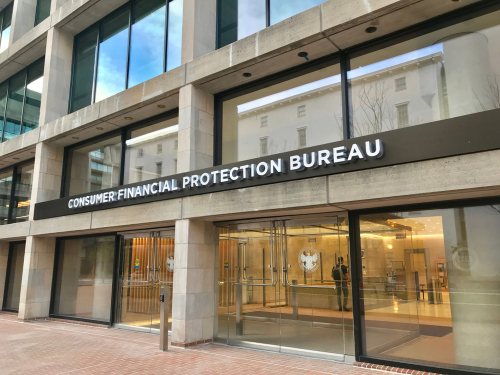Bipartisan legislation unveiled Oct. 25 in Congress would reform the process the Consumer Financial Protection Bureau (CFPB) uses when issuing civil investigative demands (CIDs) to financial services providers.

“Recent activity shows that the CFPB has abused its ability to examine consumer financial services providers through CIDs by producing vague statements of purpose without specifying alleged wrongful conduct, ultimately limiting procedural relief available to respondents,” bill sponsor U.S. Rep. Andy Barr (R-KY) said Tuesday.
“The financial services industry needs to comply with the CFPB’s CIDs, but they also have the right to know what the CFPB is asking for and what it is pursuant to a stated violation,” added the congressman.
Barr introduced the Civil Investigative Demand Reform Act of 2024, H.R. 10036, alongside lead cosponsor U.S. Rep. Vicente Gonzalez (D-TX), and said the bill would “give industry the regulatory clarity they deserve.”
If enacted, H.R. 10036 would require the CFPB to explicitly reference any alleged violations, as well as allow companies the ability to raise concerns, such as vagueness or undue burden of CIDs, and the CFPB then would have 20 days to narrow or justify the CID, according to a bill summary provided by congressional staff.
Additionally, financial firms would be able to bring CIDs to federal court for relief if the CFPB denies a reasonable petition to modify or set aside a demand, the summary says, and would impose a six-year statute of limitations on CIDs.
“Small financial institutions are vital to our local economies as they provide greater loan access and financial stability to many,” said Gonzalez. “This bipartisan legislation will ensure that our financial institutions can provide important services to our communities by reducing burdensome bureaucratic barriers while still prioritizing consumer safety.”
H.R. 10036 is under consideration by members of the U.S. House Financial Services Committee.